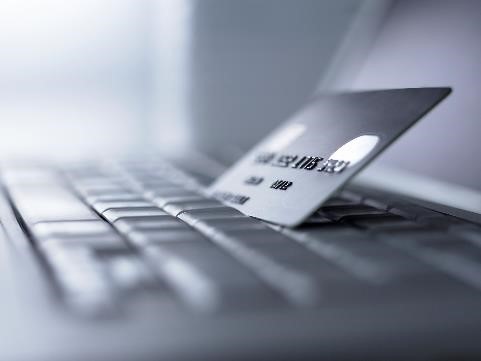 The Intersection of Financial and Digital Literacy The Intersection of Financial and Digital LiteracyWhat does it mean to be financially literate? Click to read
|
There are many definitions of financial literacy, but one of the most important ones is from the OECD.
According to the OECD, financial literacy means having the awareness, knowledge, skills, attitudes, and behaviors needed to make good financial decisions and improve your financial well-being.
Financial literacy starts with being aware of various financial concepts, products, and services. It involves understanding the importance of managing money effectively and being aware of the financial resources available to you.
|
 |
To be financially literate, you need to have knowledge about different financial topics, such as budgeting, saving, investing, debt management, and understanding financial terms and concepts. This knowledge helps you make informed decisions and navigate the financial landscape.
Financial literacy includes developing practical skills related to financial management. These skills can include budgeting, tracking expenses, setting financial goals, analyzing investment options, and evaluating financial risks. By acquiring these skills, you can effectively manage your finances and make sound financial decisions.
Attitudes refer to the beliefs and mindset you have towards money and financial matters. Having a positive attitude towards financial well-being, such as valuing saving, being disciplined in financial habits, and having a proactive approach towards financial planning, is an important aspect of financial literacy.
Financial literacy is reflected in the actions and behaviors you demonstrate when it comes to managing your finances. It involves practicing responsible financial behaviors, such as living within your means, paying bills on time, avoiding unnecessary debt, and regularly saving and investing for the future.
 |
In short, being financially literate means having the knowledge and skills to manage your money wisely. It's about understanding things like budgeting, saving, investing, and dealing with debt.
Financial literacy also means knowing about different financial products and services and being able to make smart decisions with your money. In the digital world, it's important to be aware of how to use online banking and other digital tools safely.
When you're financially literate, you can make better choices with your money, improve your financial situation, and work towards a more secure future.
|
Why does financial literacy matter? Click to read
 |
Making Informed Financial Decisions: Financial literacy equips you with the knowledge and skills necessary to make informed decisions about your money. It helps you understand the implications of different financial choices and empowers you to select the options that align with your goals and values.
|
|
Avoiding Financial Pitfalls: Without financial literacy, you may be more susceptible to falling into financial traps or making poor financial decisions. With proper knowledge and understanding, you can navigate financial challenges, avoid unnecessary debt, and steer clear of fraudulent schemes.
|
 |
 |
Building Financial Security: Financial literacy plays a vital role in building a secure financial future. By understanding concepts such as budgeting, saving, and investing, you can effectively manage your income and expenses, create emergency funds, and work towards long-term financial goals, such as retirement planning.
|
|
Protecting Against Exploitation: Seniors, in particular, can be vulnerable to financial exploitation. Financial literacy enhances your ability to identify potential scams, protect your assets, and recognize when to seek professional advice or assistance. It empowers you to safeguard your financial well-being and maintain control over your financial decisions.
|
 |
 |
Enhancing Confidence and Empowerment: Having financial literacy not only improves your financial decision-making skills but also boosts your confidence in managing your money. It empowers you to take control of your financial matters, reducing stress and anxiety related to finances and enhancing your overall well-being.
|
|
Adapting to the Digital Age: In today's digital world, financial transactions and services have become increasingly digital. Financial literacy helps you navigate online banking, mobile payment systems, and other digital financial services confidently and securely. It ensures you can make the most of the opportunities offered by the digital landscape while minimizing the associated risks.
|
 |
By understanding why financial literacy matters, you can recognize its impact on your financial well-being, take steps to enhance your knowledge and skills, and make informed financial decisions that positively influence your present and future financial security.
How is financial literacy in the digital environment unique? Click to read
Financial literacy in the digital world is different from traditional financial literacy because it involves using digital tools and platforms to manage your money. It means understanding how to safely use online banking, budgeting apps, and other digital tools.
Digital environment involves using various digital tools and platforms to manage your money. This includes online banking, mobile payment apps, budgeting apps, and investment platforms. It's important to become familiar with these tools and understand how to use them safely and effectively.
In the digital environment, it's important to protect your personal information and stay safe online. This includes learning how to stay safe online, recognizing and avoiding scams, and using secure browsing practices. This helps to prevent identity theft and financial fraud.
The internet offers a wealth of information and resources for managing your finances. Being digitally literate means knowing how to find reliable financial information online and staying updated on the latest trends and regulations.
Understanding different digital payment options is essential. This includes online payments, peer-to-peer transfers, digital wallets, and contactless payments. Knowing the benefits, risks, and security measures associated with these payment methods allows you to make informed choices.
Financial literacy in the digital environment means adapting traditional financial decision-making principles to the digital landscape. This includes assessing the credibility of online financial institutions, comparing digital financial products and services, and understanding the terms and conditions of digital contracts.
 |
By being financially literate in the digital environment, you can confidently make informed decisions, protect yourself online, and use digital tools to improve your financial well-being.
|
 Understanding Digital Financial Services Understanding Digital Financial ServicesWhat are online and mobile banking, and how can you use them? Click to read
 |
Online banking refers to using a computer or internet-enabled device to access your bank accounts and conduct financial transactions. It allows you to view your account balances, review transaction history, transfer funds between accounts, pay bills online, and set up automatic payments.
To use online banking, you need to have an internet connection and access to your bank's secure online platform. Typically, you will need to create an online banking account with your bank and set up login credentials, such as a username and password. Once logged in, you can navigate through the online banking portal to perform various financial tasks.
|
Mobile banking, as the name suggests, involves using a mobile device, such as a smartphone or tablet, to access your bank accounts and conduct financial transactions. Mobile banking apps provided by banks allow you to perform similar functions as online banking but in a more convenient and portable way. With a mobile banking app installed on your device, you can check your account balances, transfer funds, pay bills, deposit checks using the device's camera, and receive notifications about your account activity.
To use mobile banking, you need to download and install your bank's mobile banking app from the app store relevant to your device's operating system, such as the Apple App Store or Google Play Store. Once installed, you will need to log in using your online banking credentials or set up a separate mobile banking login.
Using online and mobile banking provides several benefits. It allows you to conveniently access and manage your accounts from anywhere and at any time, without the need to visit a physical bank branch. You can save time by conducting transactions electronically and avoid the hassle of visiting multiple bill payment centers. It also provides a secure way to manage your finances, as reputable banks employ encryption and other security measures to protect your sensitive information during online transactions.
To effectively use online and mobile banking, it's important to follow security best practices. This includes keeping your login credentials confidential, regularly reviewing your account activity, using secure internet connections, and being cautious of phishing attempts or suspicious messages requesting your personal information. If you encounter any issues or have questions about using online or mobile banking, it's recommended to reach out to your bank's customer support for assistance.
What are online payment systems? Click to read
|
Online payment systems have revolutionized the way we make payments and conduct transactions in the digital age. These systems provide convenient and secure methods to pay for goods and services online without the need for physical cash or checks.
Online payment systems, also known as digital payment systems or e-payment systems, are platforms that enable electronic transactions and facilitate the transfer of funds between individuals or businesses. They act as intermediaries, securely transferring money from the payer to the payee in a virtual environment.
|
 |
 |
 |
 |
 |
 |
|
Bank Transfers: Bank transfers allow you to directly transfer funds from your bank account to another individual or business. This can be done through the already mentioned online banking platforms or mobile banking apps. Bank transfers are commonly used for larger transactions or when making payments to trusted entities.
|
Credit/Debit Cards: Credit and debit cards are widely used for online payments. They are linked to your bank account and can be used to make purchases on e-commerce websites or through payment gateways. When making a payment, you enter your card details, including the card number, expiration date, and CVV code, to authorize the transaction. The payment is processed, and the amount is deducted from your card balance or charged to your credit line.
|
Digital Wallets: Digital wallets, also known as e-wallets, are applications that securely store payment information and allow you to make purchases electronically. Popular examples include PayPal, Apple Pay, Google Pay, and Samsung Pay. These wallets can be linked to bank accounts, credit cards, or prepaid cards, enabling quick and easy payments with just a few taps on a mobile device.
|
Online Payment Gateways: Online payment gateways are platforms that facilitate secure online transactions between buyers and sellers. When making a purchase on an e-commerce website, the payment gateway processes the transaction by securely transmitting payment information between the buyer, seller, and the financial institutions involved. Popular online payment gateways include Stripe, PayPal, and Square.
|
Peer-to-Peer Payment Apps: Peer-to-peer (P2P) payment apps allow you to send money directly to one another using their mobile devices. These apps eliminate the need for cash or checks when splitting bills, paying friends or family, or conducting small-scale transactions. Popular P2P payment apps include Zelle, Cash App, and Revolut.
|
Online payment systems offer several advantages. They provide convenience by eliminating the need for physical cash or checks and allow for quick and efficient transactions. They also offer enhanced security measures, such as encryption and fraud protection, to safeguard your financial information. Furthermore, online payment systems enable seamless international transactions, making it easier to purchase products or services from around the world.
|
To use online payment systems, you typically need to create an account with the chosen system and link it to your bank account or credit card. During the payment process, you provide the necessary payment information and authorize the transaction. It's important to ensure that you are using reputable and secure online payment systems to protect your financial information and minimize the risk of fraud.
By familiarizing yourself with online payment systems, you can enjoy the convenience and security of making digital payments. It's important to exercise caution when providing payment information online and to regularly monitor account activity for any unauthorized transactions.
|
 |
What other digital financial services should you know of? Click to read
 |
 |
 |
 |
|
Personal Finance Apps: Personal finance apps encompass a wide range of applications that offer financial management tools, tips, and resources. These apps may include features like expense tracking, bill reminders, financial goal setting, and credit score monitoring. Popular personal finance apps include Wally, You Need A Budget (YNAB), and Fintonic. Exploring these apps can provide you with tools to stay organized and make informed financial decisions.
|
Digital Budgeting Tools: Digital budgeting tools are applications and software that help you track and manage your expenses, income, and savings. These tools provide features like expense categorization, goal setting, and real-time spending insights. Popular examples include Monzo, Revolut, Emma, and Money Dashboard. Using these tools can assist you in creating and maintaining a budget to achieve your financial goals.
|
Digital Insurance Services: Digital insurance services provide a convenient way to purchase and manage insurance policies online. These platforms offer various types of insurance, such as auto, home, health, and life insurance. Examples include Thinksurance, Shift Technology, and Getsafe. Utilizing digital insurance services can help you compare coverage options, obtain quotes, and manage your insurance policies with ease.
|
Investment Platforms: If feeling more confident in your financial knowledge, digital investment platforms allow you to invest in various financial instruments, such as stocks, bonds, mutual funds, and exchange-traded funds (ETFs), through online portals or mobile apps. These platforms often provide educational resources, investment recommendations, and portfolio tracking features. Examples include Investing.com and Binance. Exploring investment platforms can help you grow your wealth and achieve long-term financial goals.
|
 |
By familiarizing yourself with these digital financial services, you can leverage technology to simplify your financial management, improve your financial well-being, and gain better control over your finances. However, it's important to assess the security measures, privacy policies, and terms of service of these platforms to ensure the protection of your personal and financial information.
|
 Managing Digital Financial Risks Managing Digital Financial RisksWhat risks are associated with using digital financial services? Click to read
While digital financial services offer convenience and accessibility, it's crucial to be aware of the potential risks involved. Here are some common risks and challenges associated with using digital financial services:
|
Security Risks: One of the main concerns is the security of your personal and financial information. Cybercriminals may attempt to gain unauthorized access to your accounts, steal your identity, or engage in fraudulent activities. This includes phishing attacks, malware, and data breaches. It's important to use secure and trusted platforms, employ strong passwords, enable two-factor authentication, and be cautious of sharing sensitive information online.
|
Privacy Risks: Digital financial services often require the collection and storage of personal data. There is a risk that your information may be shared or sold without your consent, leading to privacy breaches. Understanding the privacy policies of the services you use and being cautious about sharing unnecessary personal information can help mitigate these risks.
|
Financial Scams: The digital environment provides fertile ground for various financial scams. These scams can include investment fraud, phishing emails, pyramid schemes, and fake websites posing as legitimate financial institutions. Being vigilant and skeptical of unsolicited messages, verifying the authenticity of websites and links, and avoiding suspicious offers can protect you from falling victim to these scams.
|
Technical Issues: Digital financial services rely on technology, and technical glitches or system failures can occur. These issues may result in transaction errors, delays, or temporary unavailability of services. It's important to have backup plans, maintain copies of important financial documents, and promptly report any technical issues to the service provider.
|
Lack of Human Interaction: Digital financial services often lack the human interaction found in traditional banking. While this may provide convenience, it can also result in challenges when seeking personalized assistance, resolving disputes, or obtaining clarification on complex financial matters. Understanding the support channels available and knowing how to reach out to customer service can help address these concerns.
|
By being aware of these risks, you can take proactive steps to safeguard your financial well-being in the digital realm. It's crucial to stay informed, regularly monitor your accounts, review transactions, and promptly report any suspicious activities to your financial institution. Additionally, keeping your devices and software updated, using reputable antivirus software, and practicing safe browsing habits can contribute to a more secure digital financial experience.
How can you protect yourself when using digital financial services? Click to read
 |
 |
 |
 |
|
Use Strong and Unique Passwords: Create strong passwords for your online accounts and avoid using the same password across multiple platforms. Include a combination of uppercase and lowercase letters, numbers, and special characters. Regularly update your passwords and consider using a reputable password manager to securely store and manage them.
|
Enable Two-Factor Authentication (2FA): Activate two-factor authentication whenever possible. This adds an extra layer of security by requiring an additional verification step, such as a unique code sent to your mobile device, in addition to your password. 2FA helps prevent unauthorized access even if your password is compromised.
|
Be Cautious of Phishing Attempts: Be vigilant about phishing attempts, which are fraudulent attempts to obtain your sensitive information through deceptive emails, messages, or websites. Avoid clicking on suspicious links or providing personal information in response to unsolicited requests. Verify the legitimacy of any communication before sharing sensitive data.
|
Update and Secure Your Devices: Keep your devices, such as smartphones, tablets, and computers, updated with the latest software patches and security updates. Install reputable antivirus software to protect against malware, and regularly scan your devices for any potential threats.
|
 |
 |
 |
 |
|
Use Secure Networks: Avoid accessing sensitive financial information on public or unsecured Wi-Fi networks. Instead, use trusted networks with password protection, such as your home Wi-Fi or a secure mobile data connection. Encrypt your internet connection whenever possible to add an extra layer of security.
|
Monitor Your Accounts Regularly: Keep a close eye on your financial accounts by regularly reviewing your transactions and statements. Report any unauthorized or suspicious activities to your financial institution immediately. Many financial institutions offer mobile apps or online portals that allow you to monitor your accounts conveniently.
|
Be Mindful of Social Media Sharing: Be cautious about sharing personal or financial information on social media platforms. Cybercriminals can gather information from social media profiles to facilitate identity theft or other fraudulent activities. Adjust your privacy settings to restrict access to your personal information.
|
Educate Yourself: Stay informed about the latest security practices and common scams in the digital landscape. Be aware of the red flags indicating potential risks, such as unsolicited emails asking for sensitive information or offers that seem too good to be true. Participate in educational programs or workshops focused on digital financial security.
|
By following these protective measures, you can significantly reduce the risk of falling victim to cyber threats and enhance the security of your digital financial transactions. Remember, being proactive and informed is crucial in maintaining a safe and secure digital financial experience.
What do you need to know about your rights when using digital financial services? Click to read
When using digital financial services, it's important to understand your rights to ensure a fair and secure experience. Here are key aspects you should know about your rights.
|
Data Privacy: You have the right to know how your personal information is collected, stored, and used by the digital financial service provider. Familiarize yourself with the privacy policy and data protection practices of the service you are using. Ensure that your personal data is handled in accordance with relevant privacy laws and regulations.
|
 |
 |
Security Measures: Digital financial service providers are responsible for implementing robust security measures to protect your information. They should have safeguards in place to prevent unauthorized access, data breaches, and fraud. Be aware of the security features offered by the service and choose providers that prioritize your security.
|
|
Transparency and Disclosure: Financial service providers should provide clear and transparent information about their products, fees, terms, and conditions. Take the time to read and understand the terms of service and any agreements you enter into. If you have any questions or concerns, reach out to the provider for clarification.
|
 |
 |
Dispute Resolution: In case of any issues or disputes with the digital financial service provider, you have the right to seek resolution. Familiarize yourself with the provider's dispute resolution process, including avenues for complaints and grievances. Many providers have dedicated customer support channels to address user concerns.
|
|
Consumer Protection Laws: Understand the consumer protection laws and regulations that apply to digital financial services in your jurisdiction. These laws are designed to ensure fair and transparent practices by financial service providers and provide recourse in case of any wrongdoing. Stay informed about your rights and the available avenues for seeking redress.
|
 |
 |
Terms and Conditions: Take the time to carefully review the terms and conditions of using digital financial services. Pay attention to any limitations, liabilities, or exclusions mentioned in the terms. If you have any doubts or concerns, consider seeking legal or professional advice before proceeding.
|
|
Accessibility: Digital financial service providers should strive to make their services accessible to all users, including individuals with disabilities. If you require any accommodations or have specific accessibility needs, reach out to the provider to inquire about available options.
|
 |
Remember, being aware of your rights when using digital financial services empowers you to make informed decisions, protect your interests, and seek resolution in case of any issues. Stay informed, read the fine print, and choose service providers that prioritize your rights and security.
Summing up Click to read
|
Well done! Now you know more about:
 Financial literacy and its importance in making informed financial decisions. Financial literacy and its importance in making informed financial decisions.
 Various digital financial products and services available, as well as features, benefits, and risks associated with digital financial tools. Various digital financial products and services available, as well as features, benefits, and risks associated with digital financial tools.
 Potential risks and threats in the digital financial landscape, strategies to mitigate and control these risks, and your consumer rights and the procedures for seeking compensation. Potential risks and threats in the digital financial landscape, strategies to mitigate and control these risks, and your consumer rights and the procedures for seeking compensation.
|
 |
|

 The Intersection of Financial and Digital Literacy
The Intersection of Financial and Digital Literacy










